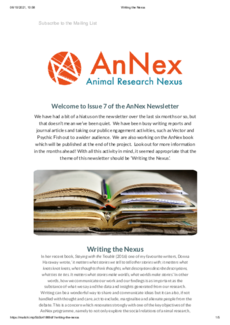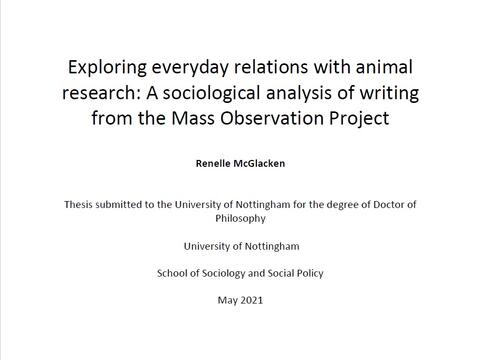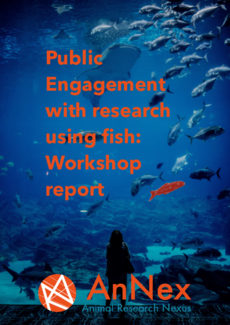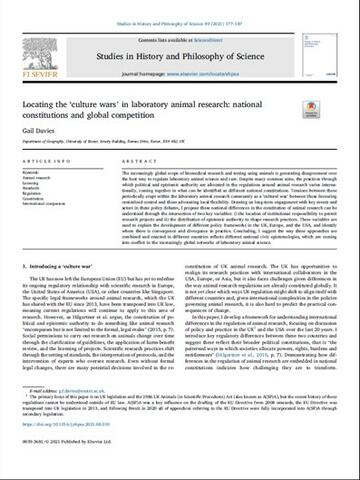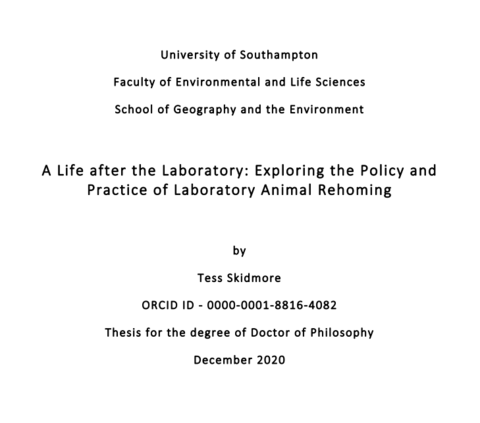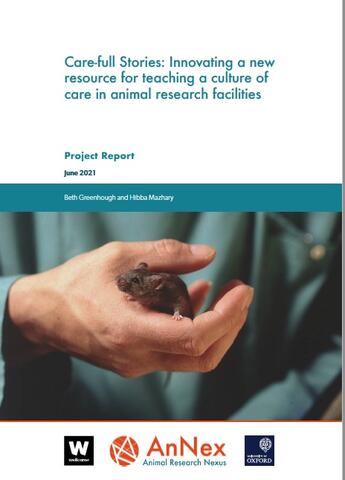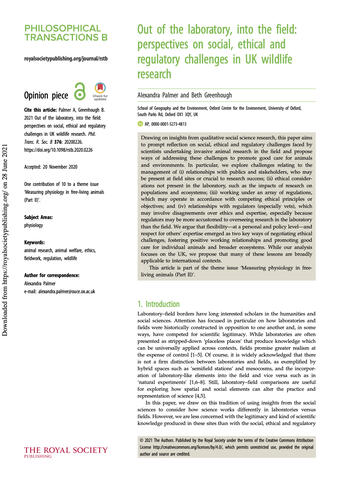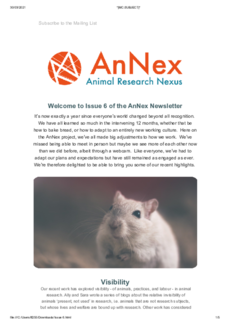Publications
Animal research remains a practice marked by controversy and moral dilemma. However, UK science-society dialogues on the issue are increasingly managed via one-way transmissions of information which construct publics as passive and attribute their concerns to a lack of ‘correct’ knowledge. Challenging such assumptions, this paper questions how and why people actively manage their interactions with animal research through entangled practices of knowing and caring. Based on an analysis of writing from the UK Mass Observation Project, this paper explores difficulties and discomforts associated with animal research which can cause strategic withdrawals from engagements with the topic. In doing so, it extends existing concepts of ‘uncomfortable knowledge’ (Rayner) and ‘strategic ignorance’ (McGoey) to develop novel concepts of ‘uncomfortable’ and ‘strategic’ care. Finally, in examining desires to respond to animal research, I engage with Haraway’s notion of ‘response-ability’ to introduce the concepts of ‘responsive caring’ and ‘responsive knowing’.
Writing the Nexus
This thesis explores how the topic of laboratory animal research is related to in everyday life in the UK, providing a sociological analysis of practices of knowing, caring, and constructing necessary biomedical uses of animals. In doing so, it develops the few qualitative studies of societal understandings of animal research, aiming to expand analyses in this area beyond measurement of polarised and static notions of acceptance or opposition. Instead, this thesis approaches understandings of animal research as relational and positional, emerging within particular yet shared social worlds which give the issue meaning in the everyday.
Fish are the third most commonly used protected species in research (Understanding Animal Research, 2021) and are increasingly used in initiatives to engage publics with biomedical research. This workshop was convened in order to explore these developments, share experiences, and assess the challenges and opportunities of including discussion of fish welfare in relevant public engagement activities.
The increasingly global scope of biomedical research and testing using animals is generating disagreement over the best way to regulate laboratory animal science and care. Despite many common aims, the practices through which political and epistemic authority are allocated in the regulations around animal research varies internationally. This article proposes a framework for understanding and thinking across national differences in the regulation of animal research.
This thesis, written by Tess Skidmore, explores the rehoming of laboratory animals. Drawing on qualitative interviews and a semi-structured questionnaire, the thesis investigates the sociocultural and political importance of the growing attention toward rehoming.
This report describes the design, piloting and evaluation of a 2–3-hour training exercise that uses storytelling to reflect upon the culture of care in animal research establishments.
Drawing on insights from qualitative social science research, this paper aims to prompt reflection on social, ethical and regulatory challenges faced by scientists undertaking invasive animal research in the field. We explore challenges relating to the management of (i) relationships with publics and stakeholders; (ii) ethical considerations not present in the laboratory; (iii) working under an array of regulations; and (iv) relationships with regulators (especially vets). We argue that flexibility—at a personal and policy level—and respect for others’ expertise emerged as two key ways of negotiating ethical challenges, fostering positive working relationships and promoting good care for individual animals and broader ecosystems.
Our recent work has explored visibility - of animals, practices, and labour - in animal research.
 Knowing and (Not) Caring About Animal Research_0.png%3Fitok=2jjq5NPu)
